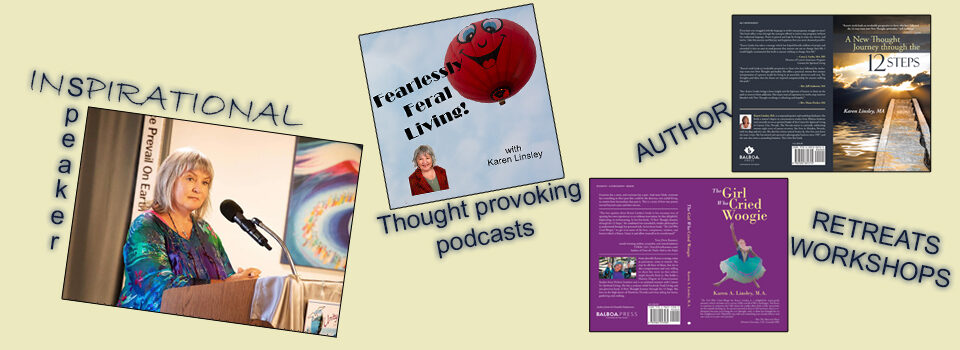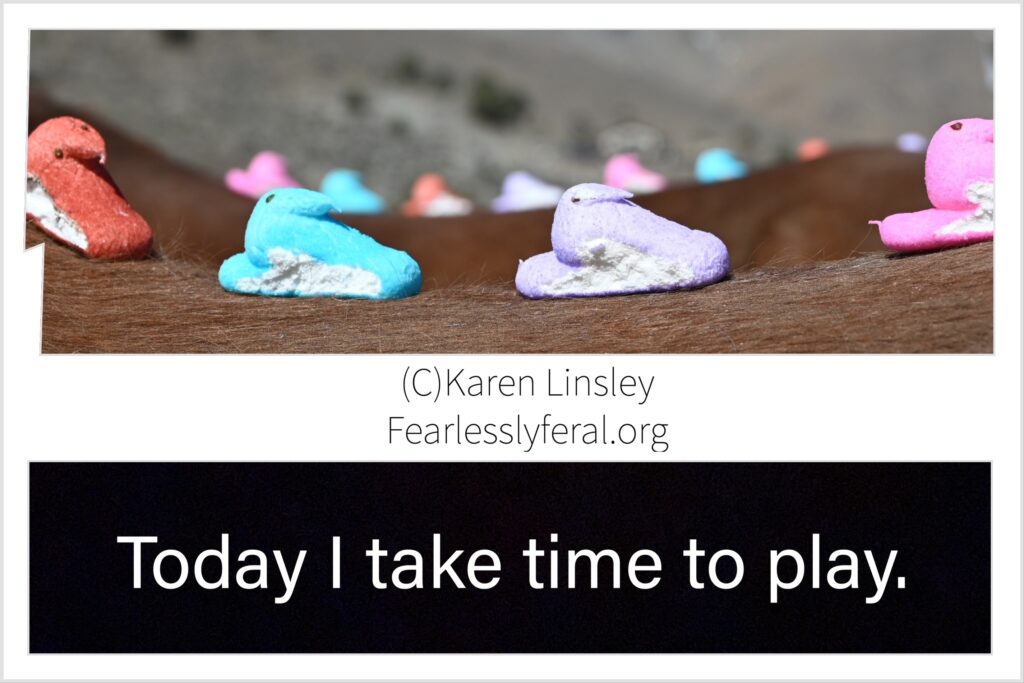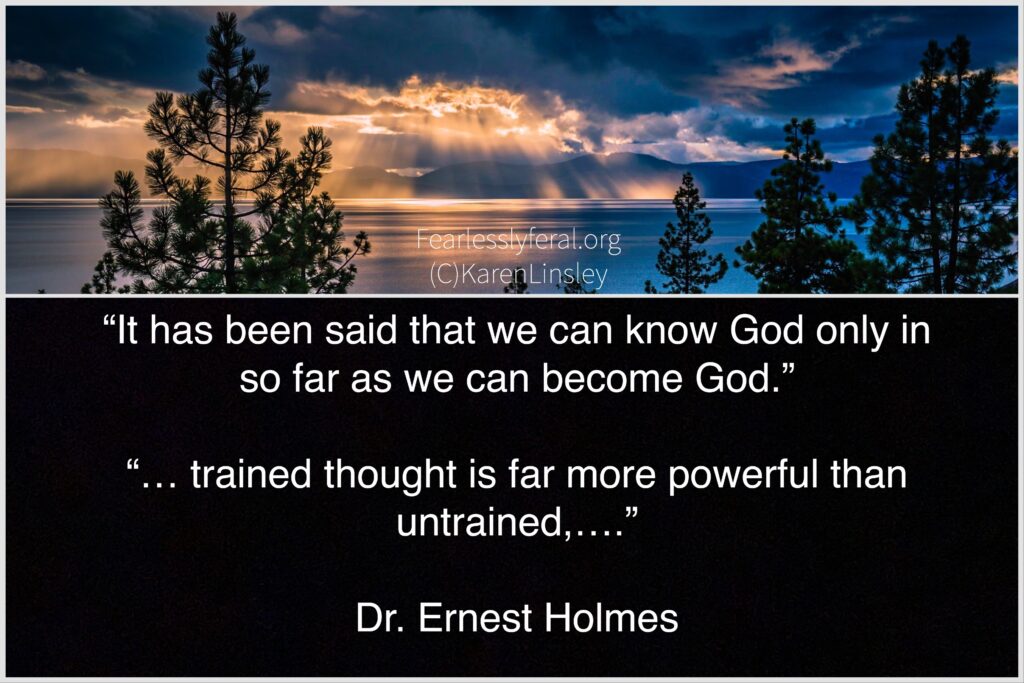
My job is to break molds.
And may I suggest that it is your job also? Because let’s face it, a mold is a hollow form that gives shape to something. It is also a precursor, meaning it is based on the past. Now, follow this down the proverbial rabbit hole and what you discover is that living in the past is like living within the confines of a mold, a mold that was created by the perceptions you had at the time, a mold that was created by values and mores installed by people other than yourself.
Ernest Holmes said that “principle is not bound by precedent.” What he meant by this is that we limit ourselves to a mold when we base our current principles on things that happened in the past.
Yes, those things happened. Yes, we sometimes need to process them. Yes, sometimes those things were traumatic, hurt a lot, and at the time, we wondered if were going to survive this one.
But if we allowed ourselves to feel all the feels, to grieve, to get angry, to be sad, and then to do our forgiveness work, and then to move into that beautiful new place of creativity, guess what? We broke the mold. We weren’t limiting ourselves by saying things such as, “I will never do THAT again!” Instead, we broke the mold and opened ourselves up to the new so that we could experience all the wonder and joy and beauty that life has to offer.
And we are in a perfect time to move through the entire process I just described. Who among us is not experiencing the trauma and fear created by the assault on individual freedoms inherent in the policies instituted by the current regime? I know I have, and continue to do so to a certain extent.
But I’ve come to realize that it was part of the strategy to do so many things so quickly. It threw us off balance. The fear and the dismay was so great that many of us went into survival mode, which is basically a version of flight or fight.
Living like that isn’t pleasant, and if we aren’t careful, we will form a brand new mold that consists of living in flight or fight. I recognized that within myself and so I took some pretty drastic steps to not form a new mold of fear-based limitation in my life. Today, I am in a new normal that feels pretty good.
Last night I had the opportunity to read something I don’t usually read, in a group setting. The quote (by anonymous) that got me was this: “the more I’m willing to act differently, the more exciting my life is.”
And my brain automatically went to this place: precisely how do I act differently?
I don’t know about you, but when I’m operating in a mold, life tends to get stagnant. Perhaps a bit boring. And very limiting.
And as much as I might want to act differently, I find it impossible to do so. This is what happened to me the first couple of months of this year. It did not feel good. You’d better believe I took some drastic steps, which really aren’t all that drastic. They just involve a bit more discipline in doing my normal spiritual practices, as well as incorporating a couple of new spiritual practices into my life.
I was talking with someone yesterday who doesn’t do very well with change. She asked me to affirm for her that she dealt better with the recent changes in her life. And while I was in the process of speaking my words of affirmation for her, out came what I know to be true about change: we are safe even in the midst of the uncertainty that change sometimes brings.
Because really, when you get right down to it, why don’t people like change? It’s because it feels unsafe. And why does it feel unsafe? It’s because we are basing our feelings of security and safety on the known. On things being the way they’ve always been. We are basing our feelings of safety and security on outer things, usually on physical things such as belongings and even our shelter: our home. What works better is to base our feelings of security and safety on what is permanent, what is never changing. And that thing is the higher self within us. Some people call it god. Find. Others call it the universe. Fine. I call it the Force when I’m feeling playful. But one thing never changes no matter what I call It.
The nature of God Itself never changes. It is always present, always good, always a loving presence that gives me a feeling of power and safety. The Force is where I get my faith, and when I have faith, everything is safe.
I’m reminded of what the Buddhists say about attachment: our suffering is caused by our attachment to things, not by those things going away. Because let’s face it, they always go away. People go away, things go away. It’s just the way life is.
I’m blessed because I learned at an early age that I had to create my own safety and security within myself because I did not feel safe in the world. I did so by retreating within myself.
Of course, I was missing a key piece of successfully navigating loss and change back then. I didn’t yet know back then that there was this Spirit of the Universe, this Stuff that Is, this Energy Force, this Thing, that existed inside of me. An inner place of strength, peace and power. An inner place of safety and security. I just knew that what was out there wasn’t safe. I wasn’t really conscious of where I retreated to when I retreated, but today I know it was a form of disassociation, which basically means I disconnected from anything physical, as well as my feelings. It took me a long time to reconnect. Today, my default is still disassociation, but I recognize when I’m in that state far earlier than I ever used to, and I know how to get out of it.
Today when I go within, I am not disassociating. Today, when I go within, I know where I am going. It is to that place of stillness inside of me, that place where I can connect with my Higher Self. And when I am connected with my Higher Self, no outer changes have the power to make me feel fearful or uncomfortable, and in connecting with that Higher Self, I then am able to reconnect to the rest of me.
And when I am connected, I LOVE change! Because I know without a doubt that sooner or later, whatever change is happening ultimately results in improvement for me. Either a better way of living or better circumstances or a shift that moves me closer to enlightenment. Sooner or later, all the changes in my life result in more wisdom, more clarity, a more successful way of living and showing up in the world.
This is why, in my work with others, facilitating successful navigation through change and loss with them, I am always happy to see that they’ve had losses or changes in their lives.
Don’t get me wrong. I have empathy for them. I know the pain they are feeling. I am well familiar with the devastation that loss engenders. I have felt the dismay, the betrayal. I’ve experienced the confusion and the anger. I get it. And we have to allow those things.
This, by the way, it what processing is all about. When we have a loss, part of grief work is to simply allow the feelings, without judgement. Because if we don’t allow them, they are going to settle inside of us and fester and come out fighting, perhaps with a diagnosis of some exotic disease that is difficult or perhaps impossible to cure. Or maybe with a psychological issue that causes problems for us in our lives.
We have to allow those feelings to move through us. I guarantee it: if you allow yourself to cry, you will, eventually, be able to stop crying. I say this because when my husband died, I thought that if I allowed myself to cry I would never be able to stop. I finally allowed it, and yes, I was able to stop. And by allowing myself to cry, the grief became less and less acute. Today I just miss him.
Loss is part of life. Change is part of life.
Our job is to successfully deal with it.
And if we successfully deal with it, eventually we might just discover that we can instigate change in our lives, when we find ourselves in a mold that is limiting us.
So let’s take a look at molds. What they are, and how to break them. In this podcast/blog, I am going to list the steps I took to get out of the state of mind I was in the first couple of months of this year.
Then I’m going give you the opportunity to sign up for a class that I will offer, a class in which I will accompany you on your journey through each of the steps. By the end of the class, you will not only know how to break the mold, but you will also have broken it. You will have moved into a new way of living.
- Acknowledge that you are feeling something that is not pleasant to you.
- Have a desire to change it
- Learn about ways to discover and connect with that higher self within you.
- Be willing to really take a look at the feelings you are feeling.
- Forgive.
- Create a new mold.
There you have it: six weeks. At the end of those six weeks you will not only be living in a new mold, a new way of being, but you will be better able to handle all the stuff that life is throwing at you. AND you will be better able to respond to it.
This class will be held on Tuesdays, via zoom, from 4 to 5:30 PM Pacific time. Cost is $150. Start date is May the 6th, with class running through June 10.
To register, simply click on the link in the graphic, use the QR code, or you can just head over to the store on this very web site. Once you register, the zoom link for the class will be sent to you.









